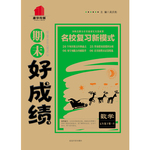题目内容
He listened socarefully that not a single word ________.
- A.be missed
- B.did henever miss
- C.did hemiss
- D.he nevermissed
当前置宾语由“not a + 名词”或者“not a single +名词”构成时,会引起倒装。前面说他听的很认真,所以后面应该是一个字都没有漏掉,故B不对。

 期末好成绩系列答案
期末好成绩系列答案 99加1领先期末特训卷系列答案
99加1领先期末特训卷系列答案 百强名校期末冲刺100分系列答案
百强名校期末冲刺100分系列答案 好成绩1加1期末冲刺100分系列答案
好成绩1加1期末冲刺100分系列答案 金状元绩优好卷系列答案
金状元绩优好卷系列答案My school makes students take one religion (宗教) class every year. But religion is really hard, especially with Mr Frank Smith for a teacher.
Mr Smith is 55 years old, with grey hair and a moustache (胡子). He always wears a blue school T-shirt, shorts and tennis shoes with long white socks. My friends say he looks like a cat.
In his class, we did yoga (瑜珈) and meditation (冥想) (actually most of the children in my class lay on the ground sleeping), tasted some strange tea, had classes outside in the garden, and watched videos and movies about Tibetan Buddhism (藏传佛教), God, and so on.
It was fun sometimes. However, the course (课程) was quite hard when it came to tests. The girls often worked until one or two o'clock in the morning on nights before the tests, but they still got bad scores.
When our test scores were bad, he would give us some makeup assignments (补考作业). Once I got a B, which I thought was bad, so I asked Mr Smith for an assignment to bring up my grades.
As a matter of fact, his assignments were often worse than the tests. The tests were just a lot of multiple-choice, fill-in-the-blanks, or short essays (文章). But his assignments usually included a speech in class.
I was not afraid of public speaking, yet it took me three days to collect the information, two days to write the speech, one day to make a PowerPoint and several hours to prepare. I knew my presentation (课堂展示) was good, because I saw Mr Smith's big smile when he listened to me. He gave me an A at last.
After finishing the course, I may not remember how hard it was or the meaning of som e vocabulary. But through Mr Smith, I learned a lesson that will be with me my whole life. That is: no matter what we do, we need to put our hearts into it, and then our work will pay off.
e vocabulary. But through Mr Smith, I learned a lesson that will be with me my whole life. That is: no matter what we do, we need to put our hearts into it, and then our work will pay off.
【小题1】The religion class is hard because Mr Smith _______.
| A.uses strange ways to teach in his class. |
| B.never gives good scores, however hard you try. |
| C.gives difficult tests and make-up assignments. |
| D.likes students to make good presentations. |
| A.Work hard by studying late into the night. |
| B.Remember all of the vocabulary. |
| C.Pay attention and take notes in class. |
| D.Do well on the make-up assignment. |
| A.people should always be given a second chance |
| B.people should always put their hearts into their work |
| C.it is good to do yoga and meditation |
| D.it is good to choose strict teacher |
完形填空(共20小题;每小题1. 5分,满分30分)
请阅读下面短文,掌握其大意,然后从下列各题所给的四个选项(A、B、C和D中),选出最佳选项。
Mike has loved flying since he was small. When he was three years old, his father took him to an air show. Mike loved the sounds of the plane, he ___36__ of becoming and airplane pilot(飞行员) someday. As Mike grew up, he learned as ___37___ as he could about flying. He wanted to go to flying school ___38___ university. He kept on ___39___ his parents about it all the time. At that time, pilot training was very ___40___. Mike’s parents couldn’t afford it.
Later Mike became a salesman. He hoped to get lots of money for flying school. He traveled ___41___ America for his factory. He liked to travel, ___42___ by plane. To save money, he usually stayed in cheap hotels.
One morning, Mike __43___ to Altanta. On the plane, after breakfast, he went to ___44___. Some time later, he woke up. The two men beside him were talking in a ___45___ voice. When Mike heard the word “hijack(劫持)”, he nearly __46___ out of his seat, but he pretended(假装) he was still ___47___ . he listened when the two men talked. Mike quickly learned what was ___48___. They planned to hijack the plane to Cuba. This made Mike very ___49____. He knew he had to stop them before they began their ___50____.
Mike pretended to use the washroom. On the way he met a hostess(空姐) and told her about the coming___51____. A moment later, the passengers were told that there was something wrong with the plane. Soon he plane landed at the ___52___ airport.
The two men received a __53___ when they saw twenty police officers were ___54___ them at the airport.
Later Mike was given free flying training as a reward. __55__ he became a pilot and flew happily ever since. Now his story is well known in the United States.
|
1. |
|
|
2. |
|
|
3. |
|
|
4. |
|
|
5. |
|
|
6. |
|
|
7. |
|
|
8. |
|
|
9. |
|
|
10. |
|
|
11. |
|
|
12. |
|
13.A saying B. changing C. discussing D. happening
|
14. |
|
|
15. |
|
|
16. |
|
|
17. |
|
|
18. |
|
|
19. |
|
|
20. |
|